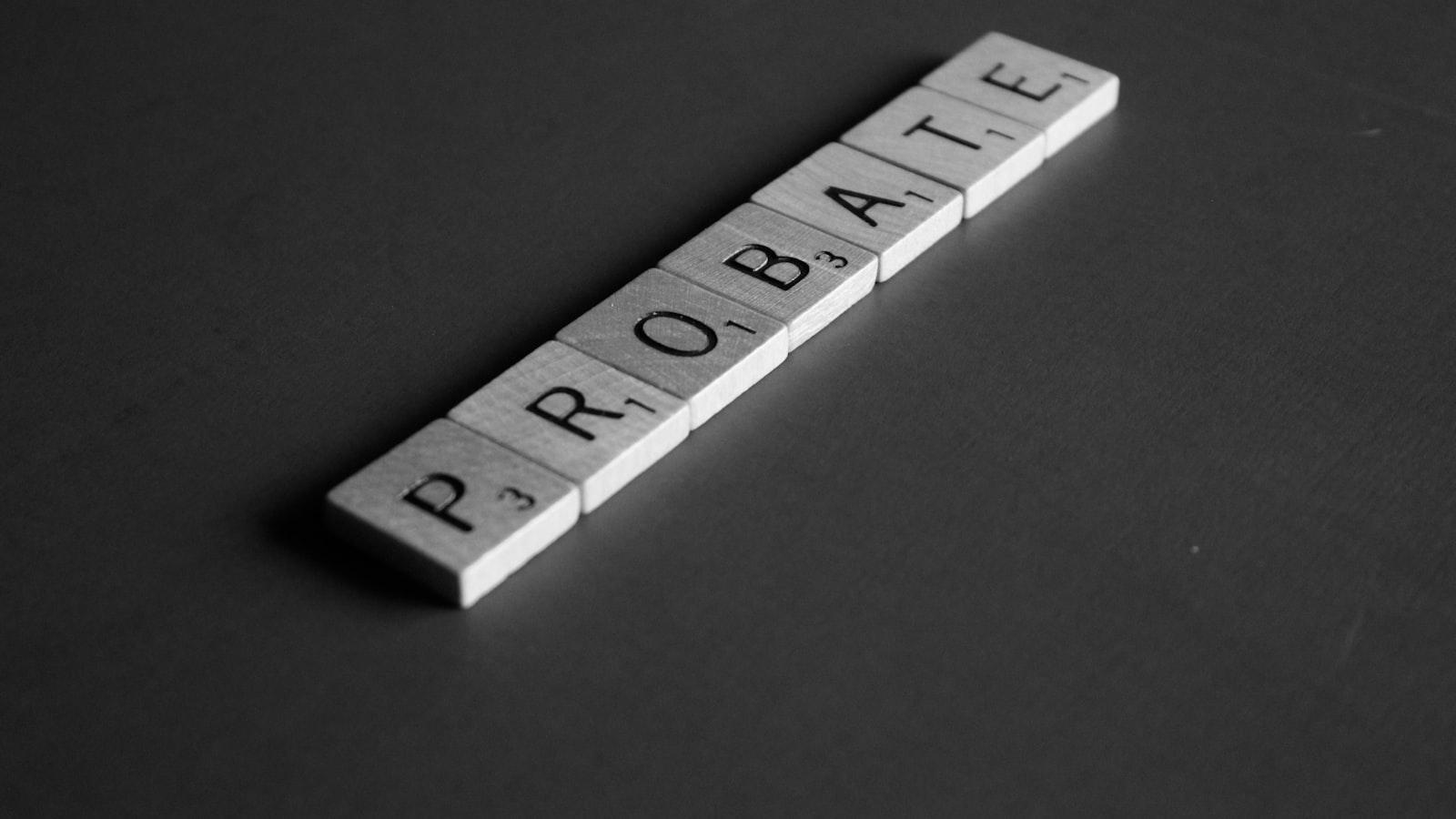When it’s time to look ahead and plan for the future, establishing an estate plan is a vital action to guarantee your assets are distributed according to your desires. Many individuals are uncertain if having a will means they can bypass the complicated and expensive procedure of probate. In this piece, we will examine the question: is probate necessary when you have a will? Let’s dive into the complexities of probate law and its implications for those who have taken the proactive step of creating a will.
Understanding the Probate Process with a Will
Dealing with legal matters following the passing of a loved one can be overwhelming. If the deceased had a will, you might be wondering if you need to go through the probate process. The answer is, it depends. If the deceased had assets that need to be distributed, the will typically needs to go through probate. Probate is the legal process of validating a will in court and administering the deceased’s estate. This process ensures that the deceased’s debts are settled, and their assets are distributed according to their wishes.
During probate, the court will oversee the distribution of assets, payment of debts, and resolution of any disputes. It’s important to note that not all assets are subject to probate. Assets held in joint tenancy, assets with beneficiary designations, and assets in a trust typically pass outside of probate. Having a will can make the probate process smoother and ensure that your loved ones receive the assets you intended for them.
Determining When Probate is Necessary
When a loved one passes away, one of the main questions that arise is whether or not probate is necessary. This process can often seem overwhelming and confusing, especially when dealing with the grief of losing a family member. Understanding when probate is required can help alleviate some of the stress during this difficult time.
Factors to consider when determining if probate is necessary include assets owned solely by the deceased, the size of the estate, the presence of outstanding debts, and the complexity of the estate. Having a will in place does not always mean that probate can be avoided. If the deceased owned assets solely in their name, probate may still be required to transfer those assets to the beneficiaries. Each state has its own laws regarding probate, so it is important to consult with a legal professional to determine the necessary steps.
Factors That Influence the Probate Requirement
There are several factors that can influence whether or not a will needs to go through the probate process. While having a will in place can help guide the distribution of assets after someone passes away, it does not always prevent the need for probate. Complexities of the estate, the types of assets, and the validity of the will are all factors to consider when determining if probate is necessary. It’s important to consult with an estate planning attorney to understand the requirements in your state and develop a plan that best suits your needs.
Exploring Alternatives to Probate for Estate Planning
When it comes to estate planning, many individuals automatically assume that probate is the only option. However, there are several alternatives to probate that can be explored depending on your specific situation. One common misconception is that having a will means you will avoid probate altogether, but this is not always the case.
Alternatives to probate to consider include creating a revocable living trust, holding property as joint tenants with rights of survivorship, and designating beneficiaries on your bank accounts or retirement accounts. It is important to explore all of your options when it comes to estate planning to ensure that your assets are distributed according to your wishes in the most efficient manner possible.
To Wrap It Up
The question of whether you need to go through probate if you have a will ultimately depends on various factors such as the assets involved, state laws, and the complexity of the estate. While having a will can streamline the probate process and ensure your wishes are carried out, it is still advisable to seek legal advice to understand the implications and requirements in your specific situation. Remember, proper estate planning can provide peace of mind for you and your loved ones in the long run. Ultimately, it’s important to be prepared and informed to navigate the probate process effectively.
 Discover the Surprising Truth: The Role of Probate Even with a Will
Discover the Surprising Truth: The Role of Probate Even with a Will
Probate is a term that often brings to mind images of complex legal procedures, long delays, and costly fees. Many people believe that having a will in place can avoid the need for probate entirely. However, the reality is that even with a will, probate may still play a significant role in the distribution of assets after someone passes away.
In this article, we will explore the surprising truth about probate and the role it plays, even when a will is present. We will delve into why probate is necessary, what it entails, and how it can impact the estate administration process. Let’s uncover the facts and debunk common misconceptions surrounding probate.
Why is Probate Necessary?
Probate is the legal process through which a deceased person’s assets are distributed to beneficiaries and heirs, debts are settled, and final wishes are carried out. It serves as a way to validate the authenticity of a will, ensure that all debts and taxes are paid, and transfer ownership of assets from the deceased to the rightful heirs.
Even if a person has a will in place, probate may still be necessary for several reasons:
1. Validity of the Will: Probate verifies the authenticity of the will and ensures that it meets the legal requirements for validity. This is crucial to prevent disputes among beneficiaries and ensure that the deceased’s wishes are honored.
2. Creditor Claims: During probate, creditors are given the opportunity to come forward and make claims against the estate. Probate allows for the orderly payment of debts and taxes before the remaining assets are distributed to beneficiaries.
3. Asset Transfers: Probate is needed to transfer legal ownership of assets from the deceased to the beneficiaries. This process can involve complex legal procedures, especially for real estate, investments, and business interests.
What Does the Probate Process Involve?
The probate process typically includes the following steps:
1. Filing the Will: The will is filed with the court, along with a petition for probate. The court will then appoint an executor or personal representative to oversee the estate administration.
2. Notification of Creditors: Creditors and beneficiaries are notified of the probate proceedings, giving them the opportunity to make claims against or contest the will.
3. Inventory of Assets: The executor compiles an inventory of the deceased’s assets, including real estate, personal property, investments, and financial accounts.
4. Payment of Debts and Taxes: Debts, taxes, and administrative expenses are paid from the estate before any distributions are made to beneficiaries.
5. Distribution of Assets: Once all debts are settled, the remaining assets are distributed to the beneficiaries according to the terms of the will.
The Role of Probate with and Without a Will
Having a will can streamline the probate process and provide clear instructions for asset distribution. However, even with a will in place, probate may still be necessary to ensure that the deceased’s wishes are carried out effectively.
Without a Will:
– Probate is essential to determine how the estate will be distributed among heirs according to state intestacy laws.
– The court appoints an administrator to oversee the estate if there is no will, and the process may become more complex and time-consuming.
With a Will:
– Probate is still required to validate the will, confirm the executor’s authority, and address any disputes or challenges that may arise.
– The probate process may be more straightforward with a will, as it provides clear instructions for asset distribution and executor responsibilities.
Benefits and Practical Tips
While probate can be a daunting process, there are some ways to make it more manageable:
1. Estate Planning: Proper estate planning, including creating a will, can help streamline the probate process and ensure that your wishes are carried out effectively.
2. Legal Assistance: Consulting with an experienced estate planning attorney can help you navigate the probate process, minimize potential challenges, and ensure that your estate is handled efficiently.
3. Regular Review: It is essential to regularly review and update your will to reflect any changes in your circumstances, such as marriage, divorce, birth of children, or significant asset acquisitions.
Case Studies
Let’s consider a hypothetical case study to illustrate the role of probate with and without a will:
– Case Study: Sarah, a single mother of two, passes away unexpectedly without a will. As a result, her estate must go through probate to determine how her assets will be distributed among her children. The court appoints an administrator to oversee the estate, and the process becomes more time-consuming and complex.
– Case Study: In contrast, John creates a will outlining his wishes for how his assets should be distributed among his siblings. Despite having a will, John’s estate still goes through probate to validate the will, settle debts, and distribute assets according to his instructions.
Firsthand Experience
“I never realized how important probate could be, even with a will in place,” says Michelle, who recently went through the probate process after her mother’s passing. “Having a will definitely helped clarify my mother’s wishes, but probate was still necessary to ensure that everything was handled properly and that creditors were paid off before any distributions were made.”
probate plays a crucial role in estate administration, even with a will in place. By understanding the probate process and the reasons why it is necessary, you can better prepare for the distribution of your assets and ensure that your final wishes are carried out effectively. Remember to consult with an estate planning attorney to create a comprehensive plan that addresses your specific needs and circumstances.


